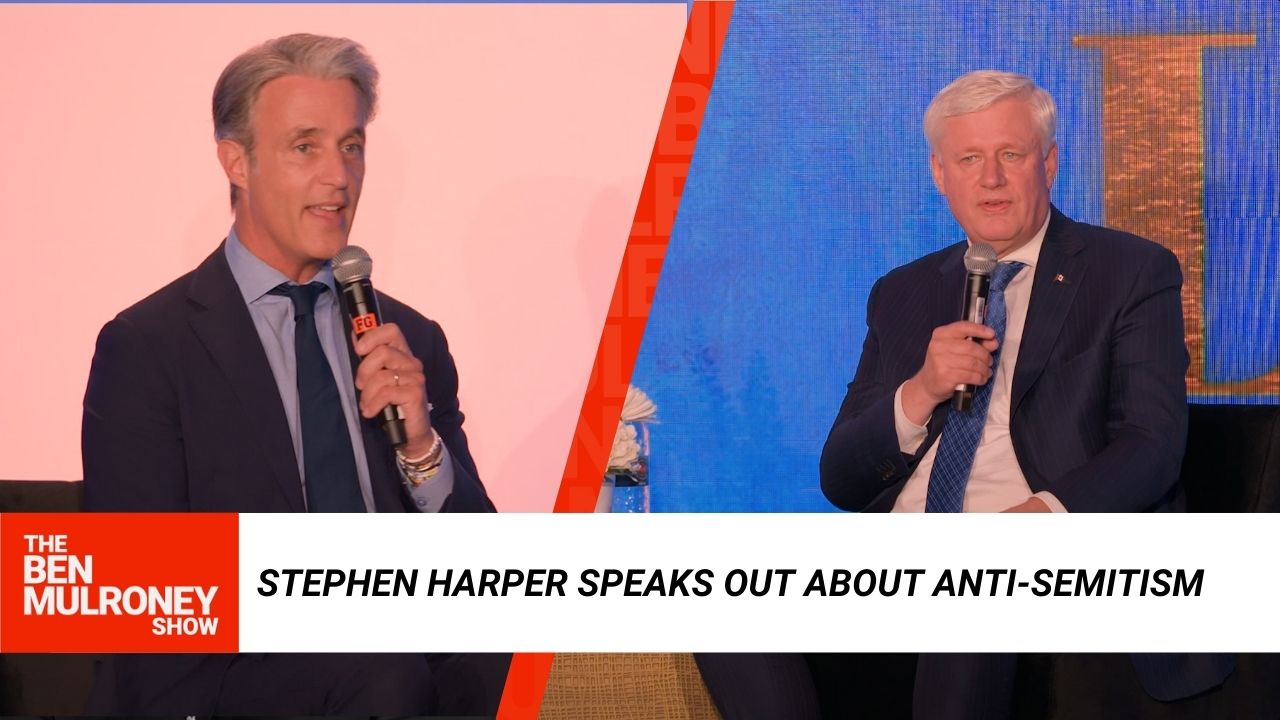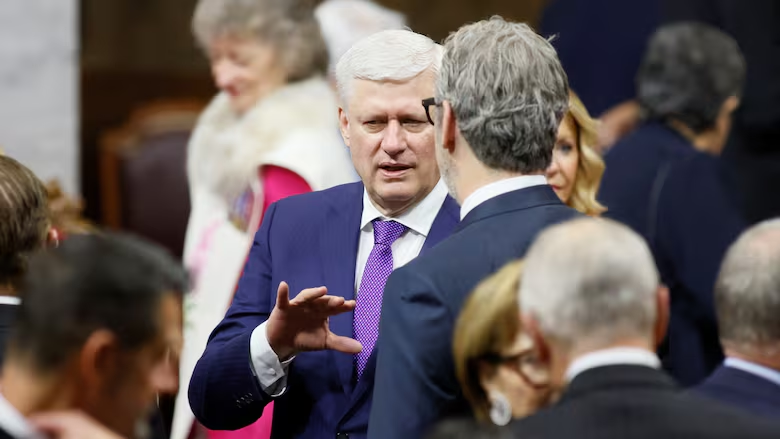Former prime minister Stephen Harper seemed to obliquely compare Russian President Vladimir Putin to Nazi dictator Adolf Hitler at a recent public talk, and accused the Russian leader of heading a “fascistic” government.
“This is the 1930s all over again,” said Harper in reference to Putin’s Feb. 24 invasion of Ukraine. “This is essentially a fascistic nationalist government in Russia invading a neighbour with total disregard for any kind of legal framework, international or otherwise, and trying to deny its right to nationhood.”
Harper made the comments Monday during a panel at the Raisina Dialogue geopolitics conference in New Delhi. Also in attendance were former Swedish prime minister Carl Bildt and Jane Holl Lute, deputy secretary of Homeland Security under U.S. president Barack Obama.
Harper was prime minister from 2006 to 2015, a period that Harper said was largely characterized by Western efforts to welcome Putin’s Russia into the international fold. U.S. President George W. Bush famously said that he looked into Putin’s “soul” and found the Russian leader to be “straightforward and trustworthy.” Soon after U.S. president Barack Obama’s 2009 inauguration, then secretary of state Hillary Clinton even staged a public “reset” attempting to warm relations with Moscow.
“I witnessed … every attempt to bring Russia into the most senior councils of our alliance,” said Harper, who had a front row seat at both NATO and the G8 during this era. Both U.S. and European leaders, said Harper, tried to “embrace Russia, to include Russia, to make Vladimir Putin … a major player in our alliance.”
Putin “decided he did not want to be that,” said Harper. “He decided he would rather be an enemy of freedom and democracy and a rival to the Western world when he had every chance to do it otherwise.”
Harper personally met Putin several times during his premiership, most notably at a 2014 G20 summit in Australia, which was held only a few months after Russia’s annexation of Crimea from Ukraine, and the invasion of Ukraine’s eastern regions by units of Russian soldiers disguised as local separatist militias. After Putin extended his hand to the Canadian at the Australian summit, Harper is said to have responded “I’ll shake your hand, but I only have one thing to say to you: Get out of Ukraine.”
Canadian support for Ukraine is one foreign policy issue in which there has been almost total overlap between Harper and the incumbent government of Justin Trudeau. In 2014, Harper inaugurated Operation Unifier, a deployment of roughly 500 Canadian Armed Forces trainers to Ukraine. The mission was repeatedly extended under Trudeau, in addition to nearly $1 billion in financial and military supports sent to the country between 2014 and Russia’s recent invasion.
The focus of Monday’s panel discussion was on the future of liberal democracies, a point on which Harper was generally quite optimistic.
Despite the rise of more extremist elements throughout Western politics, Harper said that unlike prior eras of democratic instability, today’s fringe political actors are “largely working within the framework of trying to change government through democratic means.”
Moderator Palki Upadhyay appeared to challenge Harper on this point, citing the Jan. 6, 2021 riot in which supporters of U.S. President Donald Trump entered the U.S. Capitol in an attempt to overturn the results of the 2020 presidential election.
“You did have a president who tried to use – frankly – constitutional means to overturn a result in the Senate, (for which) he was unsuccessful. And you had a riot,” said Harper. “The fact is, the system was not actually in danger of being overthrown.”







